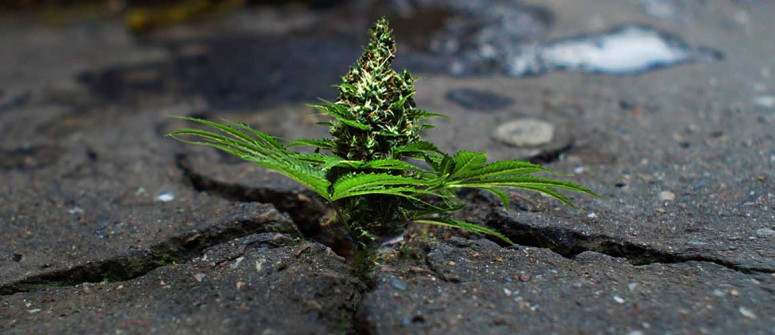Could legalization lead to a better environment?

Growing cannabis can be done greener and more environmental-friendly. Could legalization help to pave the way to a better environment?
Growing weed can be a highly rewarding endeavor, both spiritually and financially. Nurturing one’s plants from the beginning, watching them develop, and feeding them with required nutrients can even develop a deep parent-child relationship with the plants. This is of course the romantic picture we would like to have of how all the weed is being grown.
There’s a stereotypical picture that growing weed is environmentally friendly and that growers will make sure to comply with Mother Earth. That’s, of course, a myth. Growing cannabis is a business which profits from high-yields produced by using dangerous chemicals and regulations need to be set in place.
Now that a bunch of ganja enthusiasts and entrepreneurs are jumping on the growing bandwagon, the discussion of possible environmental risks connected with large cannabis grow-ops enters the discourse.
Could it be that legalization can lead to more environmental grow methods now that it doesn’t have to happen secretly anymore? Or is the opposite true?
GREENER GROW METHODS

Here’s the deal; indoor cannabis operations require a significant amount of electricity to provide our beloved plants with their necessities. Professional facilities have completely controlled environments, not allowing outside conditions to impact growth. This setting requires strong HPS lights, humidifiers, dehumidifiers, air conditioning, heaters, and fans to ensure solid yields.
A study from 2012 by scientist Evan Mills of the Lawrence Berkeley National Laboratory claims that a full 1% of total electricity usage in the US goes to powering indoor cannabis cultivation.[1] If this would correct, it is safe to say that this number must have significantly increased in the last few years as a whole lot more cannabis is being grown in the US.
The pro-legalization movement recognizes that by legalizing cannabis, this issue can be significantly mitigated if breeders and cultivators would move their operations to greenhouses, where they can take advantage of the sun, wind, temperatures and even recycled rainwater.
An example of this possibility can be observed currently in Boulder, Colorado, where it is required for cannabis growers to use renewable energy sources for cultivation. With widespread legalization, institutions will be able to experiment in the open with improving cultivation methods to be more sustainable.
Another problem surrounding cannabis cultivation is that some of the fertilizers, pesticides, and herbicides used can be quite harmful. Illegal growers are probably less concerned with the environmental impacts of their endeavors than on keeping their operations stealthy and producing as much weed as possible without getting caught.
Legalizing cannabis will allow for the implementation of higher standards, not only in materials or chemicals used for cultivation, but also in the disposal of possibly toxic waste.
Additionally, legalizing cannabis will reduce instances of law enforcement cutting down and spraying cultivation spots with dangerous chemicals, which are used to make sure everything is eradicated.
PHARMACEUTICAL POLLUTION

As we know, cannabis is used as a medicine for various conditions, spanning from cancer to migraines. Since marijuana is being prescribed to a growing number of patients, there are discussions surrounding the environmental benefits of shifting from classic pharmaceuticals.
Conjecture suggests that many pharmaceutical medicines generate environmental damage, which could potentially be minimized with cannabis replacing some of these medicines. However, this remains hypothetical; more research is needed to conclude the link with certainty.
HEMP SOLUTIONS

We should not forget that with the recent developments in legalization, the legalization of hemp is also making steps.
Hemp is the non-psychoactive variant of Cannabis sativa, which comprises around 0.3% THC or less. It doesn't need a lot of fertilizer to flourish, and there are claims that the plants can even cleanse toxins from the earth.
Hemp is used for producing thousands of different products from paper to clothing to fuel and is an effective, environmentally friendly energy source. Hemp can also create degradable plastic products, which could be a solution to our world’s plastic problem.
Hemp production is currently legal and flourishing in several parts of the world including Canada, China, Australia, Europe and many more.
CANNABIS AND THE ENVIRONMENT
The legalization of cannabis will not automatically make ganja operations green. However, as presented, legalization can bring previously illegal gardens to the surface, where growers can abide by environmental laws. Taxes shall be generated, which can be distributed to further ensure environmentally safe operations.
Cannabis is a magical plant that can provide us with food, fuel, jobs, medicine, and of course dry herb. But for it to be a solution for a greener environment and save our planet, a long road still lays ahead.
.jpg)


.jpg)
